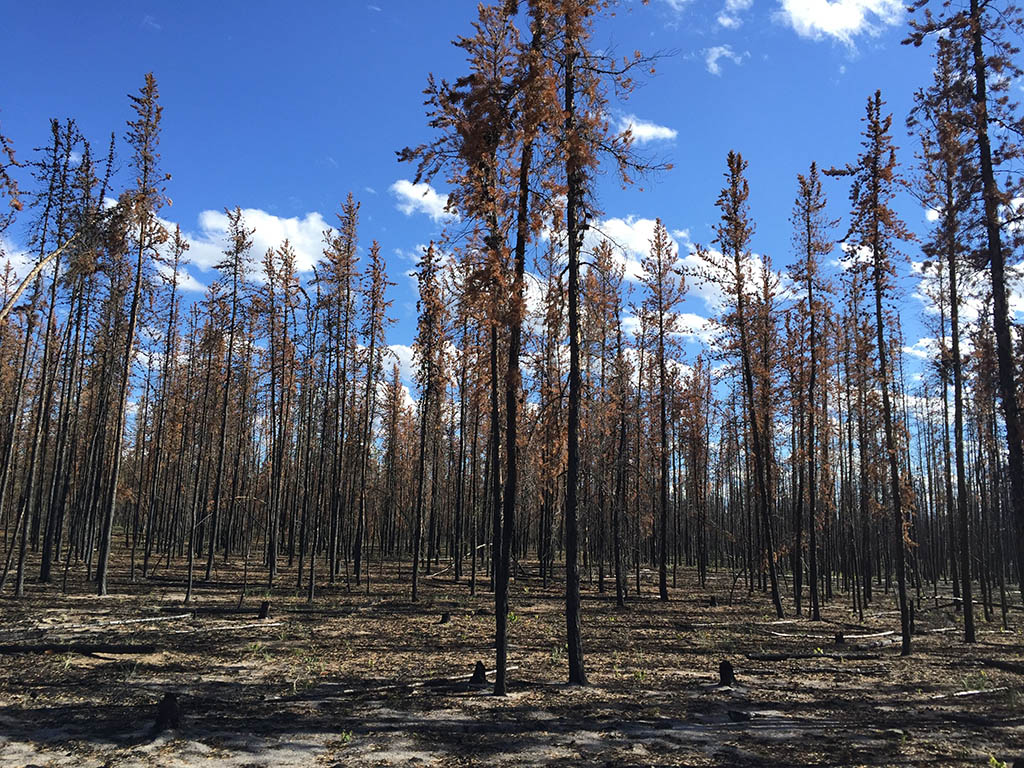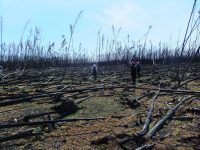The 2014 fires in Canada’s Northwest Territories burned more than 7 million acres of boreal forest, mainly comprised of cone-bearing trees like these jack pines. The fires released nearly 104 million tons of carbon into the atmosphere. (NASA / Xanthe Walker, Center for Ecosystem Science and Society at Northern Arizona University)
Home The 2014 fires in Canada’s Northwest Territories burned more than 7 million acres of boreal forest, mainly comprised of cone-bearing trees like these jack pines. The fires released nearly 104 million tons of carbon into the atmosphere. (NASA / Xanthe Walker, Center for Ecosystem Science and Society at Northern Arizona University) The 2014 fires in Canada’s Northwest Territories burned more than 7 million acres of boreal forest, mainly comprised of cone-bearing trees like these jack pines. The fires released nearly 104 million tons of carbon into the atmosphere. (NASA / Xanthe Walker, Center for Ecosystem Science and Society at Northern Arizona University)
The 2014 fires in Canada’s Northwest Territories burned more than 7 million acres of boreal forest, mainly comprised of cone-bearing trees like these jack pines. The fires released nearly 104 million tons of carbon into the atmosphere. (NASA / Xanthe Walker, Center for Ecosystem Science and Society at Northern Arizona University)



